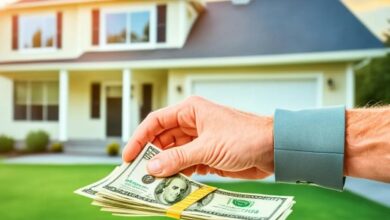
How Sustainable Upgrades Elevate Home Value in Real Estate Market?
Sustainable living principles are becoming commonplace in a time when the environment is a top concern, even in the real estate industry. Homebuyers today place a higher value on homes that not only provide comfort and utility but also help to create a more sustainable future. Sustainable upgrades have emerged as a crucial factor in elevating the home value and attracting environmentally conscious buyers. This article delves into the ways sustainable upgrades positively impact a home’s value, making it more appealing in today’s competitive real estate market.
Embracing Eco-Friendly Insulation and Windows:
Proper insulation and energy-efficient windows play a pivotal role in maintaining a comfortable indoor environment while reducing energy consumption. Opting for green insulation materials, such as cellulose, recycled denim, or wool, contributes to better energy retention, thus reducing heating and cooling costs for homeowners. Additionally, energy-efficient windows and eco-friendly replacement ceiling tiles minimize heat transfer and provide better insulation, adding value to the property by offering a sustainable living space.
Water-Saving Fixtures and Landscaping:
Water scarcity is still a major problem in the world, and homeowners that make investments in water-saving equipment and landscaping make a substantial contribution to its preservation. Invaluable upgrades like low-flow toilets, water-conserving faucets, and rainwater collection systems not only advance sustainability but also improve a home’s curb appeal. Well-designed drought-tolerant landscapes not only reduce water consumption but also elevate curb appeal, leaving a lasting impression on potential buyers.
The Credibility of Green Certifications and Labels
Obtaining green certifications and labels, such as LEED (Leadership in Energy and Environmental Design) or Energy Star, bestows credibility upon a home’s sustainability claims. These certifications validate the property’s eco-friendly features and provide assurance to potential buyers that the house adheres to stringent environmental standards. Properties with recognized green certifications tend to sell faster and at a premium, as buyers are more willing to invest in environmentally responsible homes.
Choosing Eco-Friendly Building Materials:
The selection of building materials during home construction or renovation significantly impacts sustainability. Opting for eco-friendly materials like recycled wood, bamboo, or reclaimed materials not only reduces environmental impact but also enhances the property’s aesthetic appeal. Eco-conscious buyers appreciate the use of sustainable materials and are willing to pay more for homes that prioritize environmentally friendly construction practices.
Embracing Smart Home Technology:
Integrating smart home technology is a smart sustainable upgrade for modern homeowners. Reduced energy waste is made possible by smart home systems, which enable remote-controlled lighting and smart thermostats. Buyers see these technological elements as investments and are prepared to pay more for homes with cutting-edge, environmentally friendly technologies.
Prioritizing Health and Well-being:
Sustainable upgrades that improve the health and well-being of occupants are gaining popularity in the real estate market. Indoor air quality is important, and elements like low-VOC (volatile organic compound) paints and energy-efficient ventilation systems help create a healthier and cleaner indoor environment. Additionally, adding features like gardens, windows that let in natural light, and good ventilation may improve a home’s inhabitants’ physical and mental health as well as appeal to future purchasers.
Sustainable living practices have evolved from being a passing trend to a fundamental consideration for homeowners and homebuyers alike. Sustainable upgrades not only contribute to environmental conservation and reduced energy consumption but also elevate the value of a home in the competitive real estate market. These improvements appeal to buyers who are environmentally concerned and want to have a good influence on the environment, from energy-efficient systems and appliances to green certifications and smart home technologies. Integrating eco-friendly elements into homes will likely become the norm as the globe progresses toward a more sustainable future, and houses with sustainable modifications will continue to command a high price in the housing market.




